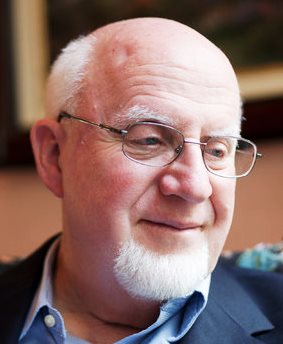
It is undisputed that when God judges all humankind, he will judge them individually and based on the heart. No one will finally be redeemed or condemned on a “group plan,” and what interests God most about each individual is not visible on the surface. God is supremely fair, and he will judge or measure each person by the light of divine revelation that the person possessed–whether creation, conscience, prophetic oracles, the Jewish scriptures, or the Gospel. But regardless of the light possessed, no ordinary human being will measure up to the norms he or she knew and understood. If human beings finally enjoy immortality in the new heavens and earth, it will have to be on some basis other than their own record of performance.
Praise God, he has provided such a basis. It is the atoning self- sacrifice of Jesus Christ. Every person who receives the benefits of Christ’s atonement will do so by God’s grace. Everyone who enjoys God’s grace will have responded in a spirit of faith to whatever revelation light they had from God. Only through knowledge of the gospel can one enjoy in this life many blessings reserved for those who hear and believe the story of Jesus–such as knowledge and assurance of sins forgiven, awareness of access to God, and anticipation of resurrection and immortality with God.
Because Jesus accomplished reconciliation and did not merely make it possible, the gospel is not a proposal but a proclamation. It is an announcement, not an offer. It does not tell us how to be reconciled to God, for by the time we hear the gospel that is already an accomplished fact. The gospel is the good news of our salvation (Eph. 1:13). It informs us of a hope already laid up for us in heaven (Col. 1:5-6). It is a truthful word we can safely believe–“God was in Christ, reconciling the world to himself, entrusting to us the message of reconciliation” (2 Cor. 5:19).
Jesus “gave himself as a ransom for all” (1 Tim. 2:6), and God is “the Savior of all, especially of those who believe” (1 Tim. 4:10). But while Jesus reconciled all, objectors can opt out. We announce the message of reconciliation and urge all who hear it to accept their reconciliation and “be reconciled to God” (2 Cor. 5:20), but some will have none of it. For them the grace of God is in vain (2 Cor. 6:1). Like the objectors who contradicted Paul and Barnabas at the Antioch synagogue, they thrust it away and cut themselves off from eternal life (Acts 13:46). They disbelieve the gospel announcement and finally will be condemned (Mark 16:16).
Sometimes we hear Christians speak about when they “got saved,” as if there are as many acts of salvation as there are people. There is but one story of human redemption and it is the story of Jesus Christ. He was God in the hands of angry sinners. They murdered him, but God raised him from the dead (Acts 2:22-36). In all that Jesus did and in all that was done to him, he was our representative before the Father. Jesus was put to death because of our sins and he was raised because of our justification (Rom. 4:25). God made us alive together with him, having forgiven all our trespasses (Col. 2:13). Having made for all time a single sacrifice for sin, Christ sat down at God’s right hand (Heb. 10:12). When were we saved? When Jesus lived, died, and rose again–there is but one answer and it is the same for us all.
HAVING SURGERY — I am scheduled to have back surgery early tomorrow (Monday) morning and probably will be in Rehab Hospital a while after that. I have a few gracEmails set up to go out during that time, but I will not be answering email in general for a while. Will be glad to hear from you — just know it is one-way only. Also appreciate your prayers for all who suffer, including me and many of you.